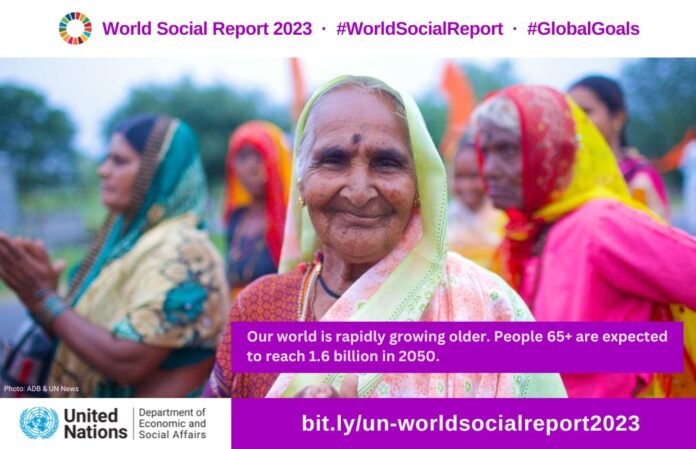NEW YORK, JANUARY 12 – With the number of people aged 65 and over projected to more than double by the middle of the century, rising to 1.6 billions in 2050, the rights and well-being of older persons must be prioritized in efforts to achieve a sustainable future, the UN said in a new report launched on Thursday.

The World Social Report 2023 calls for concrete measures to support the greying global population, amidst escalating pension and healthcare costs. Population ageing is a defining global trend of our time, according to the study, published by the UN Department of Economic and Social Affairs (DESA).
1.6 billion people over 65 in 2050
Countries can reap the benefits by giving everyone the chance to grow older in good health by promoting equal opportunities from birth. In 2021, 761 million people worldwide were aged 65 and older, which will rise to 1.6 billion by 2050. The number of people aged 80 years or older is growing even faster. Globally, a child born in 2021 can expect to live, on average, to age 71, with women living longer than men. This is nearly 25 years more than a baby born in 1950.
Northern Africa, Western Asia and sub-Saharan Africa, are on track to experience the fastest growth in the number of older people over the next 30 years. Today, Europe and Northern America combined, have the highest share of this population.
The report recommends that countries rethink long-held policies and practices associated with livelihoods and work. Many governments are already introducing opportunities for life-long learning, as well as strengthening and taking full advantage of intergenerational workforces. They are also introducing flexible retirement ages to accommodate a broad range of personal situations and preferences.
Authorities must also rethink social protection systems, including pension provision.
“One major challenge is maintaining the fiscal sustainability of public pension systems while ensuring income security for all older persons, including workers in informal employment,” the authors said. Other crucial elements involve expanding decent work opportunities for women and other groups traditionally excluded from the formal job market.
The aim is to secure their well-being when older, and to expand the productive capacity of the economy. The informal care sector’s considerable contribution to the formal economy also should be properly recognized ad factored in, the analysis suggests. (@OnuItalia)

